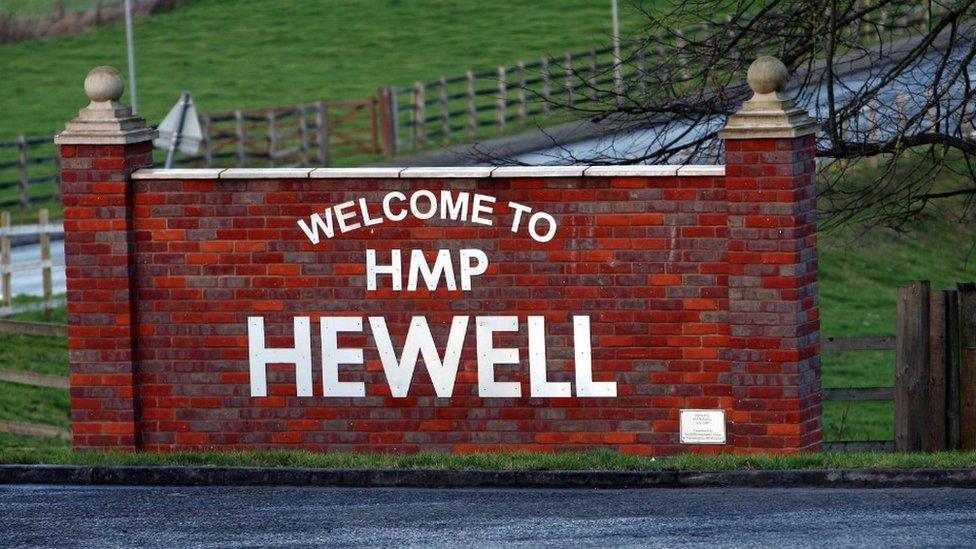Anger after vulnerable son's prison suicide
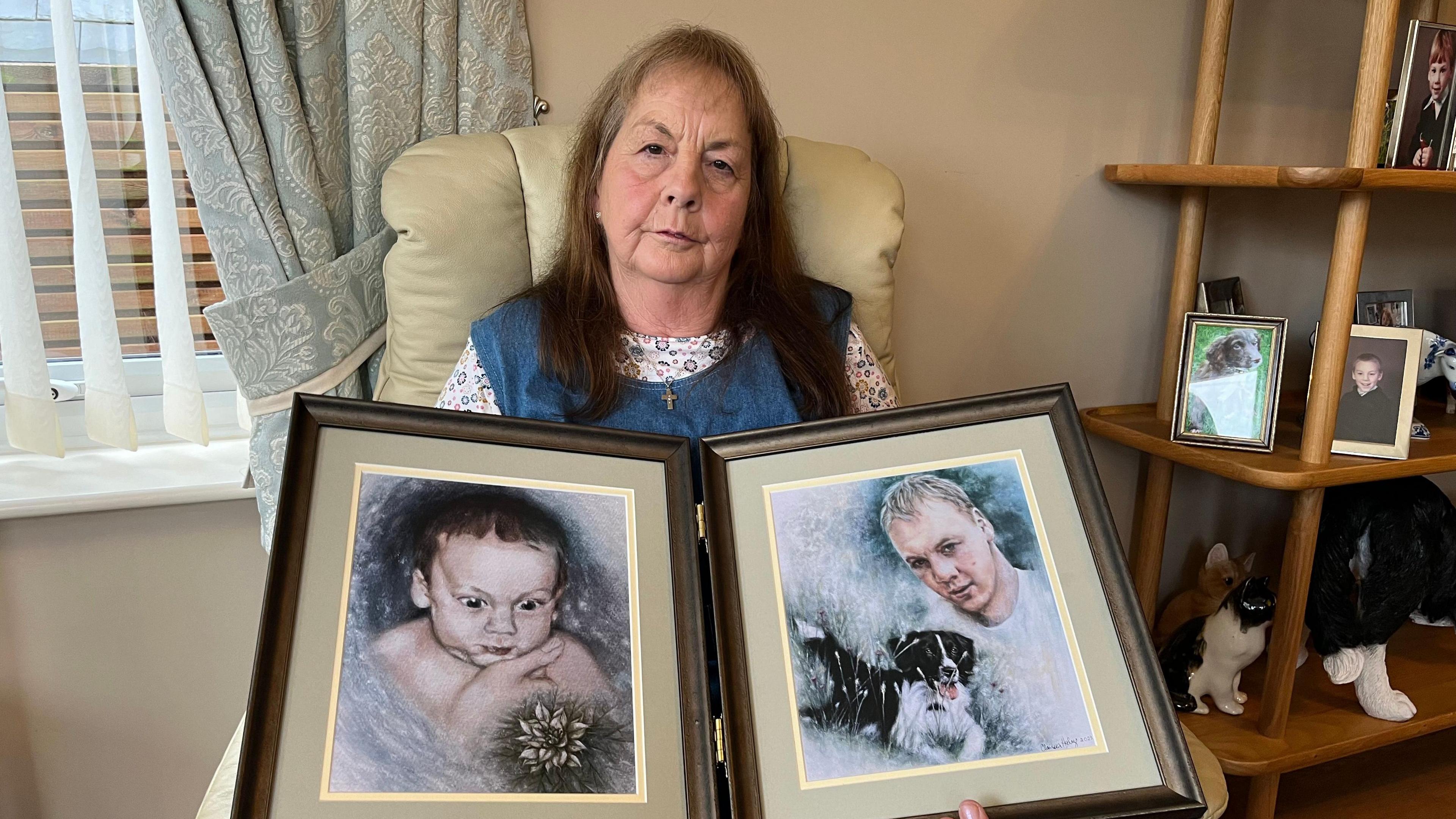
Lynne Bullar's son, Oliver Davies, killed himself while on remand in HMP Hewell. An inquest found neglect at the prison contributed to his death
- Published
A mother has said prison suicides will not stop unless the whole culture of prisons changes, after an inquest found neglect contributed to her son's death.
Oliver Davies, a vulnerable man with long-standing mental health issues, was on remand at HMP Hewell in Worcestershire for breaching his bail conditions.
The 41-year-old, who was not re-prescribed his mental health medication, took his own life on New Year's Eve 2022, after 10 weeks of being in the prison.
His mother, Lynne Bullar, said he was badly let down by staff at HMP Hewell. Two prison healthcare providers said they were working on improvements identified by the coroner.
Mrs Bullar, from Hereford, told the BBC: "My life is very badly damaged by not having Oliver here, and it could have so easily been prevented.
"There were so many opportunities to help Oliver and they didn't happen. And Oliver would not want this happening to anybody else."
Speaking of the impact of her only child's death, she said: "I'm half the person I was. I feel like my whole purpose in life has gone.
"I'm glad I am the age I am now because I believe maybe it won't be that long before we're reunited."
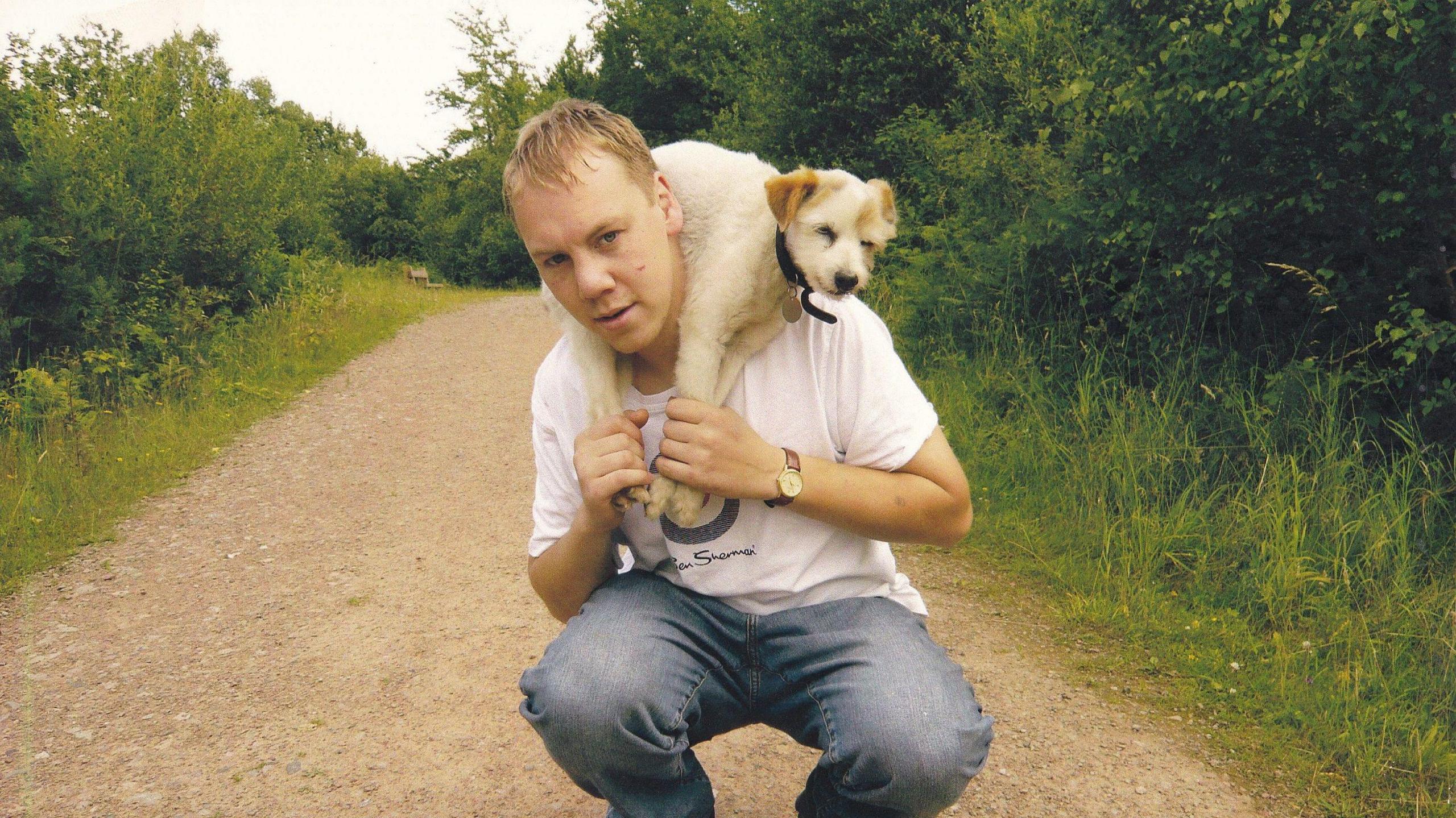
Oliver Davies, a vulnerable man with long-standing mental health issues, killed himself while on remand at HMP Hewell
An inquest this year found Mr Davies's death was contributed to by neglect, and a prevention of future deaths report was sent to Midlands Partnership NHS Trust.
Senior coroner David Reid concluded sufficient steps were not taken to ensure a proper and timely review of his mental health needs and whether his mental health medication should be re-prescribed.
He also found information concerning Mr Davies's mental health was not shared sufficiently between prison, healthcare, and mental healthcare staff at the prison.
In addition that Mr Davies was not kept sufficiently informed of progress regarding his applications for a doctor to review his mental health needs.
All of these factors, Mr Reid concluded, probably caused or contributed to Mr Davies's death.
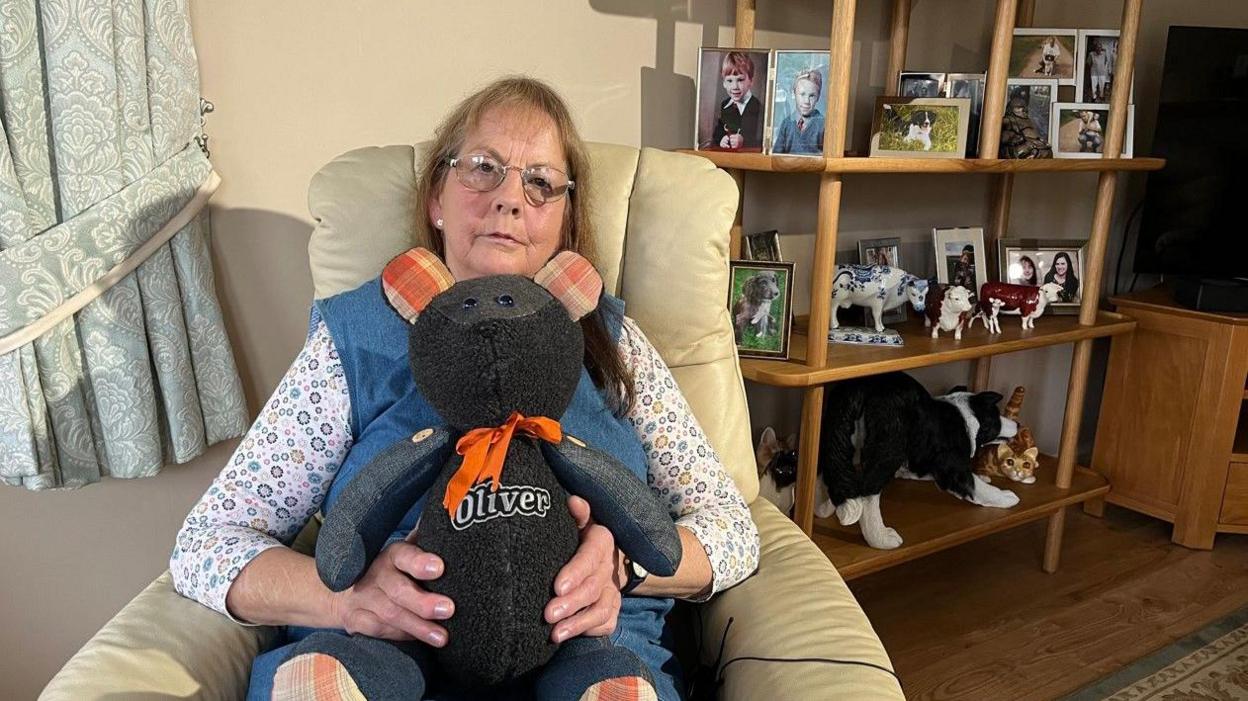
Lynne Bullar had a teddy bear made out of Oliver's clothes, called Oliver Bear, which she took every day to the inquest
In a statement, the Midlands Partnership University NHS Foundation Trust, who provided mental health care at the prison, said: "The trust accepts the coroner’s findings into the inquest of Oliver Davies. Our priority is to implement the learning from the coroner’s report.
"This process has begun, and we will continue to make the necessary improvements in line with the recommendations made by the coroner in a timely manner."
A spokesperson for Practice Plus Group, a private company providing healthcare such as GP care at the prison, said: "There were a number of lessons learned from the inquest and we will continue to work with all agencies involved to improve the care provided to those with complex needs in prison, and to identify anyone who needs additional support at the earliest opportunity."
'Please help'
Mr Davies had been charged with assault and coercive control, pleading guilty to the former and not guilty to the latter, but he was taken to Hewell for breaching bail conditions.
Prisons and probation ombudsman Adrian Usher, found that Mr Davies was vulnerable and arrived at the prison with clear markers for suicide and self-harm, but no-one in reception or the induction unit acted on this information.
His assigned mental health worker also missed two appointments to see him, and when staff eventually started suicide and self-harm prevention measures, known as ACCT, he was placed in a cell on his own.
Mr Usher said: "No-one considered whether this was suitable because everyone believed it to be someone else's decision."
Mr Davies had submitted a form asking to see a doctor, saying that he was "extremely depressed" and that he was "not coping at all, please help".

Lynne Bullar said her son was let down by staff at HMP Hewell
The jury at the inquest also heard evidence from another HMP Hewell prisoner, who said he had got to know Mr Davies and could see his mental health starting to deteriorate.
He told the jury he approached a prison officer while distressed and was sworn at and told to go away.
When asked, he confirmed he thought Mr Davies was seen as a nuisance by prison staff.
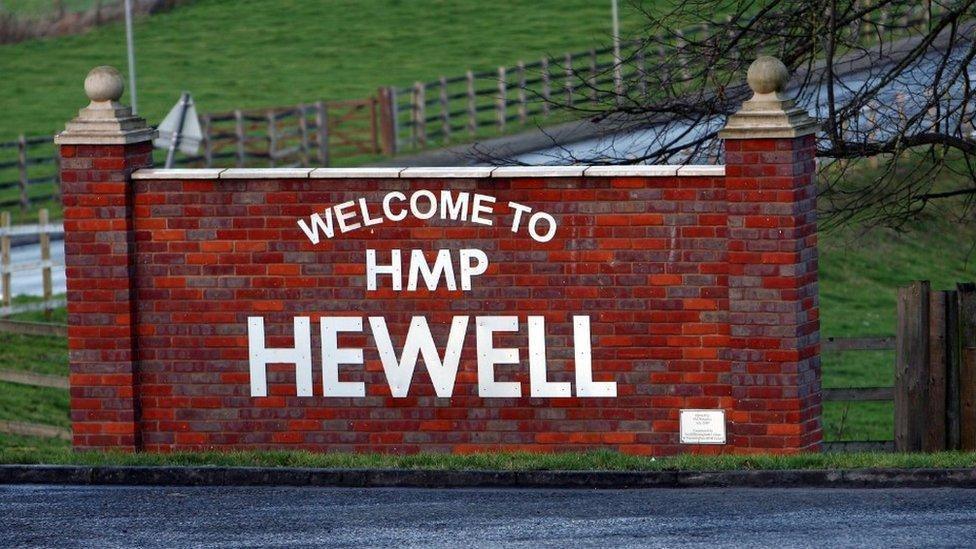
The trust providing mental health care at the prison accepted the findings and said: "Our priority is to implement the learning from the coroner’s report"
Mr Davies's death was the sixth suicide at Hewell since December 2019, with another suicide in 2023. Without change, Mrs Bullar believes there will be many more.
"It will continue unless the whole culture in these prisons change," she said.
"Will lessons ever be learned in these places?
"I don't know whether they will but if I can expose it in any way and get change then Oliver's death won't have been in vain."
Get in touch
Tell us which stories we should cover in Hereford & Worcester
If you have been affected by this story the BBC Action Line web page features a list of organisations which are ready to provide support and advice.
Follow BBC Hereford & Worcester on BBC Sounds, Facebook, external, X, external and Instagram, external.
Related topics
- Published18 December 2023
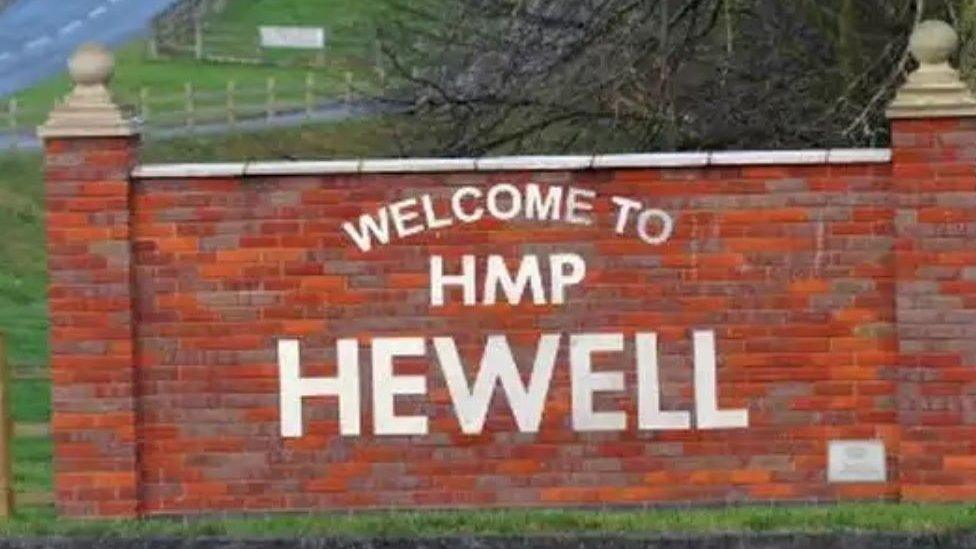
- Published20 January 2023
